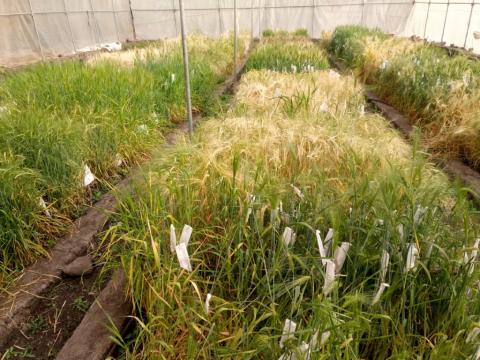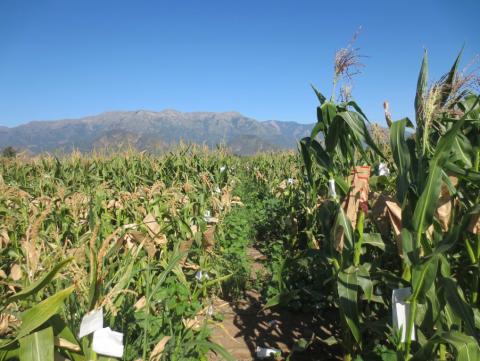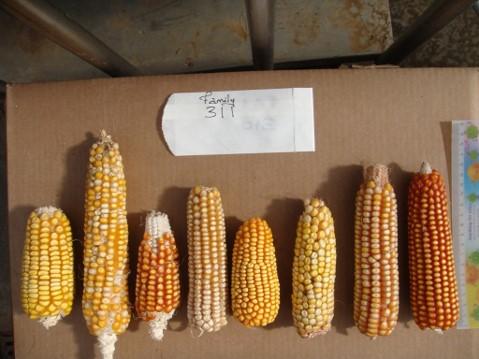Plant Genetics and Genomics

At the Institute, genetics and genomics are used to characterize the diversity of plants at different levels. Researchers use bioinformatic tools to manage and analyse large-scale data from DNA and RNA sequencing experiments, in association with data from phenotypic, physiologic and climatic characterization of individual genotypes. Specific knowledge is present to analyse genomics and transcriptomics data on a local bioinformatic platform. Genomics is used to characterize plant genetic resources representing untapped genetic agrobiodiversity from several cultivated plants, including maize, wheat, barley, minor cereals, and legumes. Genomics and genetics are also used on model species as a support platform to leverage discoveries in supporting our understanding of molecular mechanisms underlying traits.
Scientists use forward genetics approaches and genomic prediction to advance our understanding of the determinants of plant performance, developing pre-breeding tools useful to support the sustainable intensification of agriculture. Applications include forward genetics to define the genetic basis of complex traits using quantitative trait locus (QTL) mapping and genome wide association studies (GWAS) targeted at large segregating populations, diversity panels, and custom-made multiparental mapping populations with a focus on local adaptation. Traits under study include agronomic performance, photosynthesis efficiency, flooding response and anoxia. The study of plant diversity is also directed at understanding the genetic basis of evolutionary change and how the processes of evolution interact to shape modern genetic and phenotypic diversity we observe, blending quantitative trait analysis with population genetics and adaptation genomics.
A strong research interest is in applying genomic and genetics to foster local adaptation of smallholder agriculture, enhancing the transition towards a climate-ready agriculture. We use genomics-driven approaches to map genomic loci underling appreciation of farmers in the effort of capturing farmers’ traditional knowledge in a quantitative framework. It is here that new methods combining cultural, climate and genetic aspects of traditional agriculture are studies to support genomics-driven breeding in challenging cropping environments within the global climate change scenario. Under this framework, climate modelling is used in combination with genomics to support data-driven varietal choice though development of climate services including targeted medium-to-long forecasts and prediction of weather conditions relevant to successful cropping.
A more detailed description of the activities and the projects active in the Plant Genetics and Genomics section of the Institute is reported on the website of the genetics groups.



